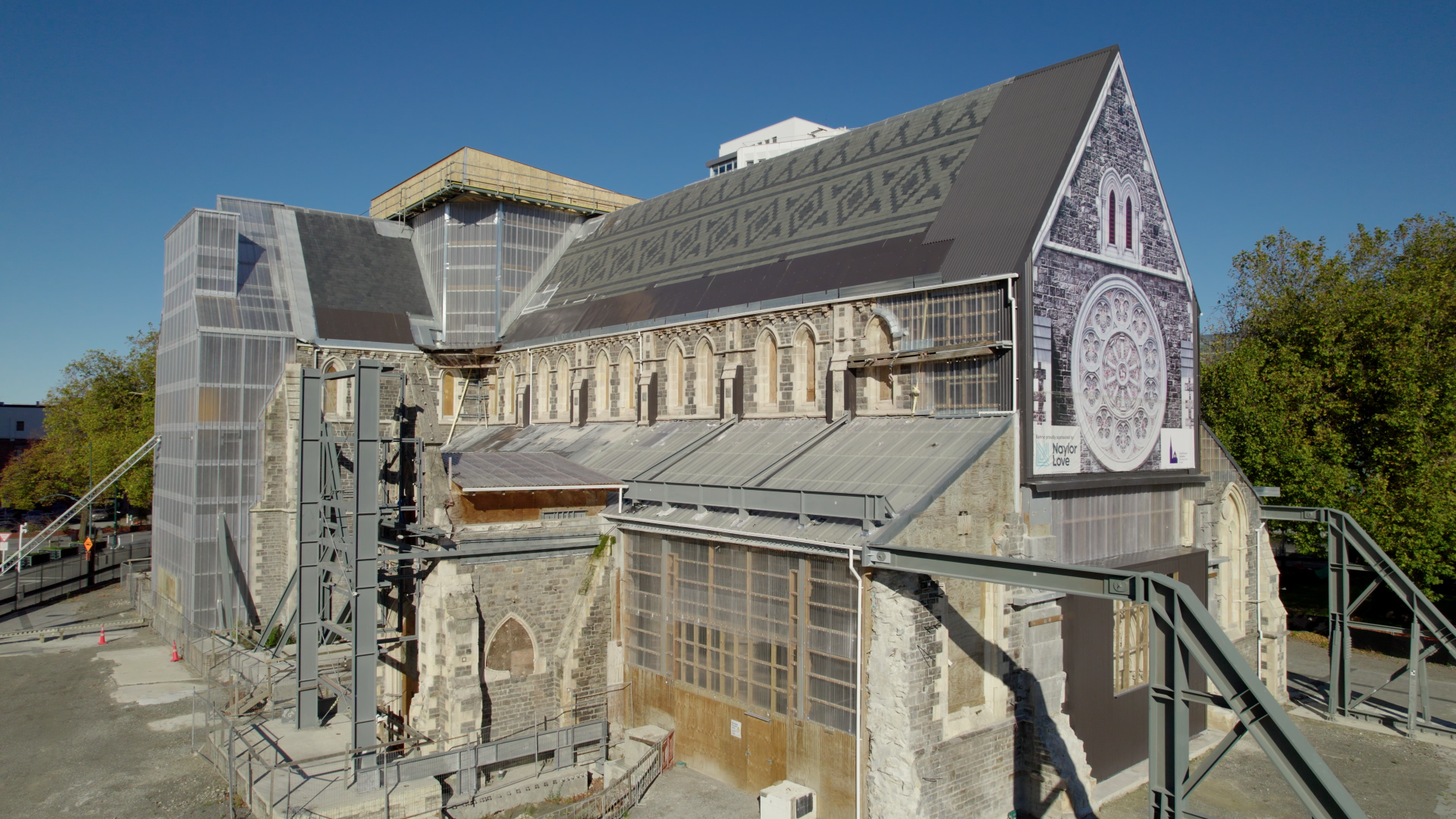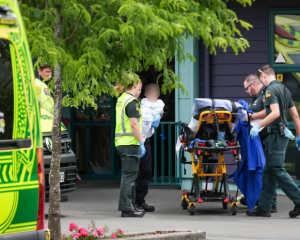By Eva Kershaw, for Frank Film.
Fourteen years on from the damaging earthquakes, Christchurch city prepares to open a first-class stadium while the Cathedral sits unfinished in an empty Square.
The Cathedral project is at a stalemate, the Square ‘desolate’, according to city planner James Lunday.
It’s a story that does not retire.
Since the Canterbury quakes, the future of Christ Church Cathedral and the surrounding Square has occupied hundreds of newspaper columns, and every camp has expressed their views.
Fourteen years on from the quakes, as the cost to rebuild the Cathedral has ballooned to $219 million, leaving an $85 million gap in funding, the reinstatement project is at a stalemate.
As well, a now seven-year-old plan redesigning Cathedral Square has not been implemented.
Many would say it’s time to accept defeat and demolish the Cathedral completely. But with the $85 million already spent on the Cathedral rebuild, chair of Christ Church Cathedral Reinstatement Ltd (CCRL) Mark Stewart says it’s too late for that.
“You can't go forward, you can't go back,” Stewart tells Frank Film.

The Stewart family are among the richest in Canterbury, and alongside donating two bells to the Cathedral in the 1970’s, they have been the top donors to the Cathedral reinstatement project.
When asked if he could fund the shortfall himself, Stewart says he’s “not prepared to entertain that.”
“I am the largest donor. I'm giving all of my time to this project. Just to write a cheque and give Christchurch the benefit of it... We're all in this boat together.”
Stewart says the people of Christchurch have forgotten how important the Cathedral and Cathedral Square were to the city’s civic activity. There are people, however, who want to restore the space as the heart of the city.
Last April, when the government declined to provide an additional $60 million (on top of $25 million granted already) for the re-build, Finance Minister Nicola Willis reasoned it was “a project that is not owned by the public, and where public use would be limited due to the cathedral being a private, religious space.”
“It's very easy to just label it as a religious building,” says Stewart. “It's actually a civic building, even though it's owned by the Anglican Church... It was used extensively prior to the earthquakes for things other than religious ceremonies. We've even been demonstrating in recent times how we can use this space for other community activities.”

Outside in the Square, veteran urban planner James Lunday longs to see people using the space again.
Lunday was employed to produce the Regenerate plan for Cathedral Square in 2017. This plan reshaped the Square into separate areas designed for diverse activities; featuring a green space, a covered market area, an outdoor concert venue and an existing underground stream resurfaced.
“Remember that before the earthquake, the Square wasn't working either,” says Lunday. The opening of malls throughout Christchurch in the 1960’s had finished the ‘all roads lead to the Square’ plans of the city forefathers. No longer did the square boast half a dozen movie theatres, nor gain the foot traffic once attracted by the bus stops, which were removed in 2000.
“This [plan] was an opportunity to get it to work again,” says Lunday.

Whilst Lunday says “it's not about defending a design that was done in the past,” he worries that there is no proper plan for Cathedral Square.
“They're just doing ad-hoc repairs on pavement around the edges of the Square. There's no major inventive and creative moves,” says Lunday.
Christchurch City Council general manager for city infrastructure Brent Smith says the Council is working with multiple developers “as they develop around the Square.”
Smith says Christchurch City Council has a budget for the Square “in the long term plan,” but could not recall the figure when asked by Frank Film.
Christchurch City Council CEO Mary Richardson says the Council wants the Square to become the heart of the city again. “So, while it's important to work in with the developers, it's also for the people of Christchurch.”
So how to move forwards?
Stewart says a clear solution requires the church, council, and central government to work together. “Right now everybody is pointing at each other saying “it's your problem to solve,””
“It's just not right for Christchurch to leave this structure in existence, in perpetuity, as it stands,” says Stewart, “we have to finish it in some way, so without that support from the authorities, then we're just not going to get there.”
As for Cathedral Square, time will tell whether the bustling crowds of the past return.













